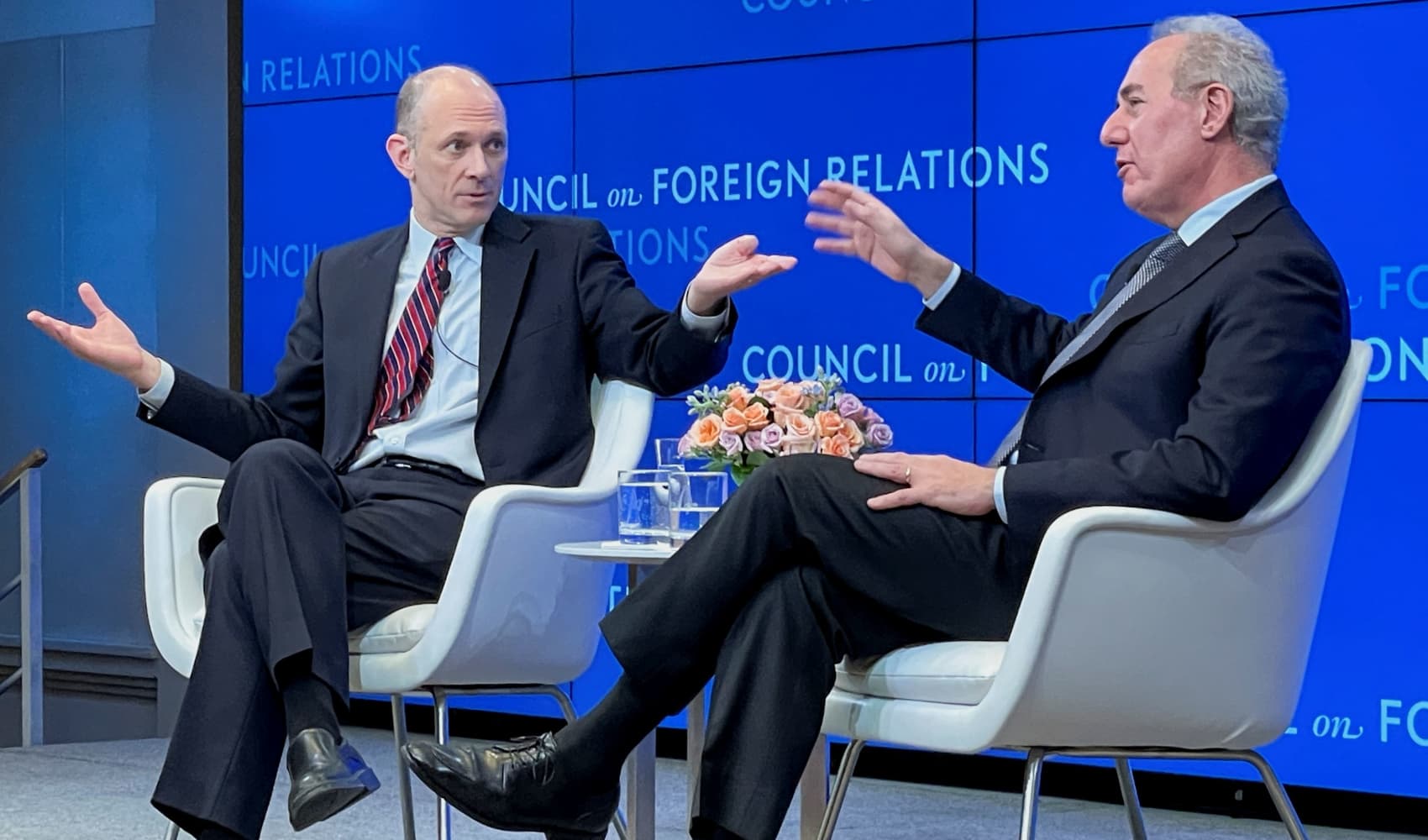
- The last Israeli election, on March 23, reflected a country split down the middle, with no political bloc winning enough seats in the 120-member parliament, or Knesset, to secure a majority.
- At the front of voter's concerns are the economy and recovery from the coronavirus pandemic.
- But the core issue of the election itself, many Israelis say, comes down to "Bibi or no Bibi," referencing the prime minister by his popular nickname.
DUBAI, United Arab Emirates — Israeli Prime Minister Benjamin Netanyahu will hit his deadline to form a new government on May 4, six weeks after the country's fourth election in less than two years.
The last Israeli election, on March 23, reflected a country split down the middle, with no political bloc winning enough seats in the 120-member parliament, or Knesset, to secure a majority.
At the front of voter's concerns are the economy and recovery from the coronavirus pandemic. But the core issue of the election itself, many Israelis say, comes down to "Bibi or no Bibi," referencing the prime minister by his popular nickname.
Get Boston local news, weather forecasts, lifestyle and entertainment stories to your inbox. Sign up for NBC Boston’s newsletters.
"We have never been this close to the end of the Netanyahu era," wrote Ben Caspit in Al Monitor last week.
If Netanyahu, now the country's longest-serving prime minister, fails to gather enough support from other parties, President Reuven Rivlin will task another member of the Knesset with the challenge — likely the center-left Future Party (Yesh Atid) chairman Yair Lapid.
Adding to the drama, the leader of the New Right (Yamina) party Naftali Bennett — who happens to be Netanyahu's former chief of staff — has expressed a willingness to join forces with Lapid in a unity government if Netanyahu's bid fails. Netanyahu has accused his former aide of being "ready to assassinate the right."
Money Report
The opposing side — an ideologically diverse group of centrist, left-wing and right-wing parties intent on replacing Netanyahu's right-wing Likud party — will then try to form a coalition without him. If those groups fail, then Israel faces the prospect of yet another election.
"The political turmoil into which the country has drifted since the end of 2018 places it as the democracy with the highest frequency of elections and reflects alarming levels of instability and lack of governance," wrote the Israel Democracy Institute on its elections homepage.
Islamist party as kingmaker
The last election brought a potential game changer into the picture: the Arab and Islamist party Ra'am, which won an unprecedented 5 Knesset seats in March, whose support will now be crucial for Netanyahu to gain the majority he needs.
Ra'am's strategy has been very tactical: it chose to run independently of any bloc, exploiting the current political uncertainty and its unique position to set its own terms. The conservative Muslim party and its leader Mansour Abbas have been holding private meetings with several parties including Likud, but have so far refused to endorse any candidate.
Meanwhile, Netanyahu's far-right political allies, particularly those of ultra-nationalist and ultra-religious ideologies, have attacked the prospect of teaming up with Ra'am.
The challenge for Netanyahu, according to Yohanan Plesner, president of the Israel Democracy Institute, "will be to obtain this commitment from Ra'am" of parliamentary support, "while also placating the most extreme rightwing flanks of his existing political camp."
"This is the only way he has a chance of reaching the majority needed to form a government," he added.

A poll published in early April by the Israeli Voice Index revealed that among right-wing and centrist voters in Israel, support is increasing for political cooperation with Arab parties. According to the poll, "55% of self-defined centrists and 34% of those identify with the right would now support a government relying on Arab party support."
In exchange for supporting Netanyahu, if it were to do so, Ra'am would likely "demand increased budgets and changes in domestic policies such as on zoning and law enforcement in the Arab sector," said Plesner, as well as a commitment from the prime minister that he would not significantly change the current status quo vis a vis Palestine.
But if Netanyahu fails to form a government by the May 4 deadline, Ra'am loses that power position.
Criminal allegations
Netanyahu's job is made more complicated by the raft of corruption charges against him. The 71-year-old is accused of fraud, bribery and breach of trust in three separate cases.
While the prime minister can still legally serve while under indictment, "his legal troubles have completely changed the political math in Israel," Plesner told CNBC in a phone call.
"Now that Netanyahu is on trial for corruption charges, all of the center/left parties – and a significant part of the right parties – will not agree to legitimize the reality of a prime minister attending his trial in the morning and then chairing the cabinet meeting in the afternoon," Plesner said.
"This has left the ultra-Orthodox and extreme nationalists as the only allies Netanyahu can completely rely on in this round of coalition negotiations."
After so many elections and so much political horse-trading, many Israelis have lost faith in the current situation.
"A majority of Israelis are disappointed with the last month's results and think there will be a fifth election this year," the Israeli Voice Index report from April 4 wrote.
One of the most striking elements of the latest election's results, says Ofer Kenig, a senior lecturer at Israel's Ashkelon Academic College, "is that the current Knesset is going to be much more fragmented. The multiplicity of parties, of course, does not bode well for the chances of forming a stable government."






